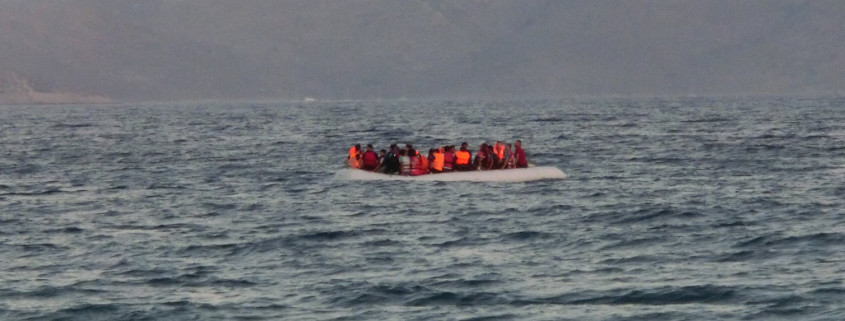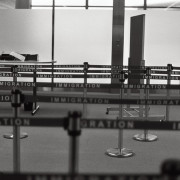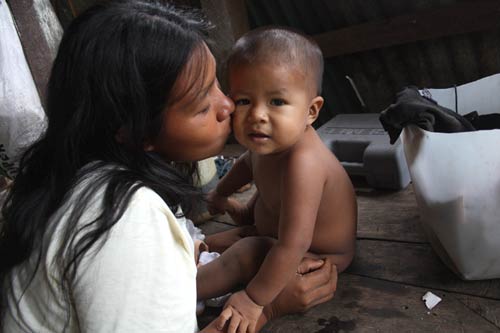Responding to the Reality of Syrian Refugees: It is Our Obligation
BY GUEST BLOGGER | November 27, 2015
written by: Daniel Eid, Saint John’s Jesuit High School, Class of 2017
Editor’s Note: The following was shared in an address to the Saint John’s Jesuit High School student body during a school-wide Thanksgiving prayer service on Tuesday, November 24, 2015.
Good morning, my name is Daniel Eid, and I am the descendant of Syrian immigrants to the United States. I would like to share the deep concern many of us have for the millions of refugees fleeing war, persecution, and dire economic conditions in the Middle East, especially Syria. Children, their mothers and fathers are risking their lives to reach foreign lands, all for a better quality life, that sadly can not even compare to ours. Many do not know the terrible living conditions and squalor that refugees are forced to survive in. Unfortunately, it is considered a miracle if one safely escapes the borders of Syria or Iraq. I ask you to listen carefully to these next few words and put yourself in the position of the refugees, leaving everything they have always known behind – their house, friends, and way of life- all for a new chance at freedom.
![A rubber boat carrying around 50 migrants and refugees arrives from Bodrum in Turkey to the Greek island of Kos in the early hours of the morning. [SOURCE: Christopher Jahn/IFRC]](https://www.ignatiansolidarity.net/wp-content/uploads/2015/11/20897697290_24cf8738f1_k-300x300.jpg)
A rubber boat carrying around 50 migrants and refugees arrives from Bodrum in Turkey to the Greek island of Kos in the early hours of the morning. [SOURCE: Christopher Jahn/IFRC]
Days later, after a few sips of water and crackers, you see a ship in the distance. It appears to be carrying Greek Naval Officers. The raft ap-proaches the ship in hopes that the officers will help you, your family, and the others, but to your surprise the officers want nothing to do with you and the people of your kind. Weapons drawn, the officers shoot at your raft, forming holes and allowing it to sink. Why do they do this? Can they not see that we are al-ready struggling? Panic arises. Everyone on the raft including you and your family descends into the Mediterranean. You hear prayers to a God that, to you, may not even exist anymore. As you sink, you reach for help, anything to hold on to that will save you and keep you on the path to freedom, but you touch nothing. Submerged into the darkness, you feel cold and abandoned. Knowing these will be your last moments, you reminisce to your past. The sea that now encompasses all that you are is the same sea you came to with your family as a child to enjoy, when times were peaceful and war and violence were something yet unknown to your mind. You realize how unfair your situation is, and how for the most part, people just want to live their lives. The peaceful reality that you experienced as a child now seems impos-sible, and all that you once knew fades to black.”
This is a reality that Syrians and other refugees face every day. Over 2,500 refugees have drowned in their attempts to find freedom from violence and hatred. Hundreds die in refugee camps every day, with their families either buried in the ground, or back home. Imagine the despair they feel at the moment they are refused by their own neighbors. These people are being treated worse than animals by other humans on a day to day basis, and as people who are called to give refuge to the displaced, we will not sit idly by while these horrific actions take place.
As supporters of the Jesuit motto “magis”, we are called to work towards the universal benefit of humanity by doing more for our neighbors. According to the book of Ephesians, all of us were refugees at some point in our lives. We were strangers to God’s promises, wandering exiles excluded from God’s grace. That is until Jesus came and welcomed us in. It was a costly welcome, but through His death we were granted, not just asylum, but a permanent home in the family of God. We all know what it feels like to be welcomed as outsiders, and we want all people to feel as we did when we were welcomed into a caring society. It is our obligation to free these people from the clinging grasps of violence and poverty that they live in, and to do this we must work together not only as a school, but as a community of Christians. Please reflect on the condition of those displaced in the Middle East, as well as those in Asia and Africa, and please keep the victims of the terrorist attacks that occurred this weekend in your prayers. God bless you all. Thank you.
ISN welcomes faith & justice related blog submissions from members of the Ignatian family. Please let us know of any blog ideas or posts using this form: ISN Blog Ideas










Testament to the fact that Jesuit high schools are producing Men and Women for Others.